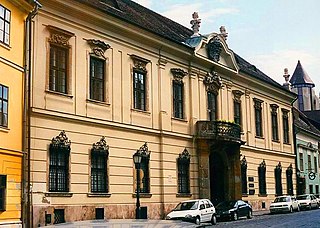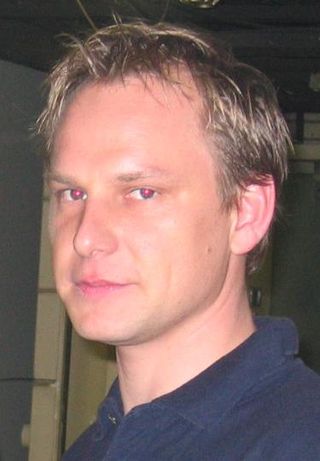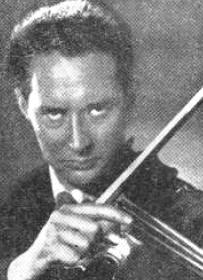
Budapest has long been an important part of the music of Hungary. Its music history has included the composers Franz Liszt, Ernő Dohnányi, Zoltán Kodály and Béla Bartók and the opera composer Ferenc Erkel.

Krzesimir Marcin Dębski is a Polish composer, conductor and jazz violinist. His music career as a musician has been that of a performer as well as composer of classical music, opera, television and feature films. In 2024, he became the recipient of the Gloria Artis Gold Medal for Merit to Culture.

Iván Fischer is a Hungarian conductor and composer.

The Budapest Festival Orchestra was formed in 1983 by Iván Fischer and Zoltán Kocsis, with musicians "drawn from the cream of Hungary's younger players", as described by The Times. Its aim was to make its concerts into significant events in Hungary's musical life, and to give Budapest a new symphony orchestra of international standing.
The International Rostrum of Composers (IRC) is an annual forum organized by the International Music Council that offers broadcasting representatives the opportunity to exchange and publicize pieces of contemporary classical music. It is funded by contributions from participating national radio networks.
Árpád Joó was a Hungarian American conductor and concert pianist.

Blaž Arnič was a Slovenian symphonic composer.

Frigyes Hidas was a Hungarian composer.

Lucijan Marija Škerjanc was a Slovene composer, music pedagogue, conductor, musician, and writer who was accomplished on and wrote for a number of musical instruments such as the piano, violin and clarinet. His style reflected late romanticism with qualities of expressionism and impressionism in his pieces, often with a hyperbolic artistic temperament, juxtaposing the dark against melodic phrases in his music.
Bálint Karosi is a Hungarian organist and composer.

Boštjan Lipovšek is a Slovenian classical horn player. A native of Celje, he studied at the Academy of Music in Ljubljana with Jože Falout. He is associated with much contemporary Slovenian music and has performed works by Lojze Lebič, Ivo Petrić, Uroš Krek, Jani Golob, Tomaž Habe and Vito Žuraj. In 2008 he was awarded the Prešeren Award.

Božidar Kantušer was a Slovene composer of classical music. He was a Slovenian citizen and an American citizen.
Alan Heatherington is one of the leading orchestra conductors in Illinois. He has conducted and/or played with virtually all of the major orchestras in the Chicago area. He was the Music Director of Ars Viva Symphony Orchestra, the Lake Forest Symphony Orchestra and the Chicago Master Singers, and is Music Director Emeritus of all three ensembles.

Uroš Krek was a Slovenian composer. A native of Ljubljana, he died in Jesenice. He worked for many years for Radiotelevizija Slovenija, and composed a number of soundtracks. Krek was a pupil of Lucijan Marija Škerjanc.
Zsolt Hamar is a Hungarian conductor.
Róbert Gulya is a Hungarian-British composer. He composes contemporary classical music as well as film scores.

Igor Ozim was a Slovenian classical violinist and pedagogue. He was based in Salzburg, Austria.

Polo Osvaldo Ernesto Piatti is a British-Argentine neo-romantic composer, concert pianist and conductor based in the United Kingdom. He is one of very few high-profile international musicians concentrating exclusively on the creation, performance and promotion of melodic, universally appealing classical music. His compositions are performed all over the world for their evocative and passionate character. Considered a pioneer performer of classical piano improvisations since his youth, he toured Europe, Asia, North and South America premiering his own works as a soloist, performing with international orchestras. Piatti is a member of the Royal Society Of Musicians Of Great Britain, the Ivors Academy and the British Music Society among others.
Igor Krivokapič is a Slovenian composer, retired tubist and instrument inventor.











